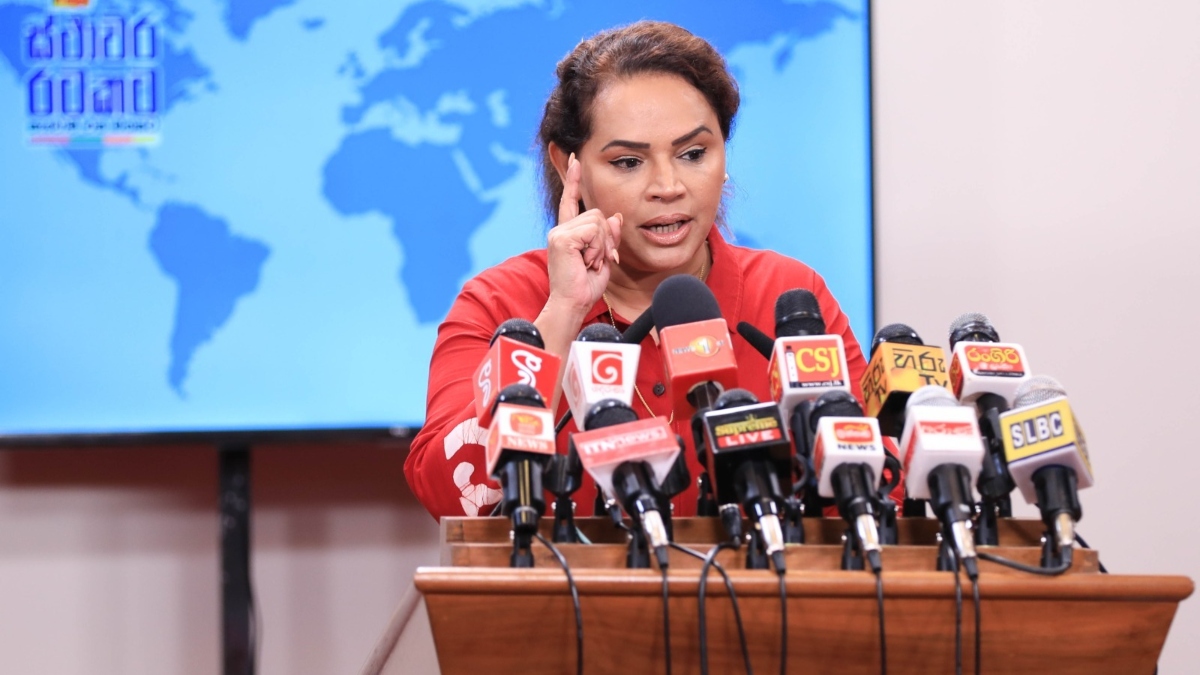State Minister of Tourism Diana Gamage says during the first seven months of this year, Sri Lanka welcomed a significant influx of 763,000 tourists, contributing to a substantial income of approximately $ 800 million.
She highlighted the success of President Ranil Wickremesinghe’s programme aimed at strengthening the national economy through the growth of the tourism industry. This accomplishment has played a crucial role in bolstering Sri Lanka’s foreign reserves, the lawmaker commented further.
Sri Lanka’s tourism industry suffered a huge setback last year due to the economic crisis, Gamage said, noting that after Wickremesinghe took office as the President, the “era of queues” in the country came to an end, while the economy slowly bounced back. At the same time, a favourable situation was created for the tourism industry, she added.
Gamage shared these remarks during a press briefing at the Presidential Media Centre (PMC), themed “Collective Path to a Stable Country”.
She emphasised the importance of introducing new approaches and adopting innovative strategies to enhance the tourism industry, while underscoring the necessity of developing vibrant and active cities to attract tourists, stating that visitors do not seek out lifeless destinations or dead cities.
In line with its efforts to boost tourism, the State Ministry of Tourism in Sri Lanka has undertaken a new programme to promote the country as an attractive tourist destination, Gamage said adding that Sri Lanka hosted the final round of the Miss Tourism World pageant, with contestants from 30 countries visiting and exploring the beauty of the island.
Meanwhile, a significant milestone is set to take place at the end of this year, as Sri Lanka plans to host the final competition of the World Travel Awards (WTA) in December, according to Gamage, who said this prestigious event is expected to see the participation of 117 countries, further elevating Sri Lanka’s status as a global tourism destination.
Speaking further, the State Minister underscored the importance of a robust regulatory framework to safeguard the interests of both tourists and the tourism sector. In this regard, the Government has taken steps to implement a system that evaluates the quality of accommodations, such as Air B&B and homestays, provided to tourists. By maintaining high-quality facilities and services, Sri Lanka can attract more tourists and enhance the overall tourism experience, she explained.
Addressing speculations regarding the cultivation of hemp (cannabis), Gamage said the focus is not on its use as an intoxicant. “Cannabis, indeed, is classified as a drug, but it also has significant potential for medical and industrial purposes. In fact, there are 22 varieties of cannabis in Sri Lanka and numerous medicinal products that can be derived from hemp, presenting a significant opportunity for Sri Lanka to capitalise on its cultivation and exports.”
Pointing out that hemp cultivation is gaining prominence globally, and Sri Lanka has the potential to become a leader in this industry, the State Minister said there are lucrative investment prospects in producing medicines from hemp, which can yield substantial economic benefits for the country. “A ten-acre hemp plantation alone has the potential to generate around $ 200 million.”
The State Minister went on to highlight the vitality of implementing a night economy system in order to boost the tourism industry. “Tourists seek destinations that provide them with the freedom to enjoy life to the fullest. Closing tourist destinations early, such as at 10 p.m., would discourage tourists from visiting. To attract tourists, it is essential to create vibrant and lively environments, not ‘dead cities’ (areas with limited nightlife).”
She said it is crucial to extend the operating hours of tourist destinations, allowing visitors to have a more enjoyable experience to attract more tourists. “This may involve keeping certain places open later into the night, providing various entertainment options, and facilitating activities that appeal to tourists.
Furthermore, establishing direct flight services with international airlines, such as Chinese and Italian airlines, will enhance accessibility and convenience for tourists, Gamage commented that these partnerships can help bring in more visitors and contribute to the growth of Sri Lanka’s tourism sector.











